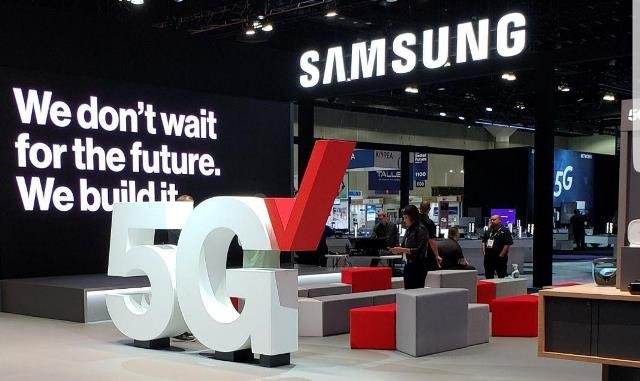Samsung said sales in its Networks Business has faced delays in operators’ investments in 5G services in both Korea and overseas markets due to the spread of Covid-19.
 Samsung, one of the suppliers of telecom networks to mobile operators, does not reveal revenue from its Networks Business. Samsung will be aiming to cash in on the challenges faced by market leader Huawei.
Samsung, one of the suppliers of telecom networks to mobile operators, does not reveal revenue from its Networks Business. Samsung will be aiming to cash in on the challenges faced by market leader Huawei.
Samsung recently said it is ready to capture opportunities in the United Kingdom which has decided to block the supply of telecom network by Huawei. Samsung is already working with mobile operators in the United States.
“While there are uncertainties over mobile network operators’ investment schedules, Samsung will continue to explore new opportunities for business expansion,” Samsung said announcing the financial result for Q2 2020.
Samsung Electronics expects a global recovery in demand for smartphones and consumer electronics to underpin profits in the second half of the year, after a coronavirus-propelled shift to online working boosted quarterly earnings.
Samsung posted a 23 percent jump in operating profit in the April-June quarter on the back of strong DRAM memory chip sales to online server providers, along with cuts in marketing costs.
Prices for the chips, which create temporary workspaces to allow devices to multitask, spiked in the second quarter as people shifted to working and learning online from home because of the pandemic.
Samsung’s Korean peer SK Hynix and U.S. firm Micron Technology also benefited from the trend, Reuters reported.
Operating profit at Samsung’s chip business rose 60 percent to 5.43 trillion won in the second quarter, accounting for two thirds of its total 8.1 trillion won profit.
Samsung said it expected server demand for chips to remain solid for the remainder of the year and a boost in smartphone demand, given planned product launches and anticipated demand for 5G-capable phones.
“Given many uncertainties including Covid-19, trade tension and that customers may change their inventory and investment strategies, it’s still difficult to say when (DRAM) price will hit an inflection point,” senior vice president of memory business Han Jin-man said.
Quarterly operating profit in Samsung’s mobile division rose 25 percent to 1.95 trillion won. Total revenue dropped 6 percent to 53 trillion won.
China’s Huawei overtook Samsung as the world’s biggest seller of phones, shipping 55.8 million devices to Samsung’s 53.7 million, according to research firm Canalys.
Samsung plans to unveil new flagship smartphones, including the Galaxy Note and a foldable phone in the second half, as well as expand sales of mid-tier models.
Samsung said its display business, which makes screens for mobile phones, TVs and monitors and counts Apple as a customer, is expected to improve late this year as set makers launch new products to meet demand from lockdowns easing and people shopping for year-end holidays.
Samsung Electronics’ capital expenditure reached KRW 9.8 trillion, including KRW 8.6 trillion spent on semiconductors and KRW 0.8 trillion on displays, in the second quarter.
total capital expenditure in the first half was KRW 17.1 trillion, including KRW 14.7 trillion for semiconductors and KRW 1.6 trillion for displays.
